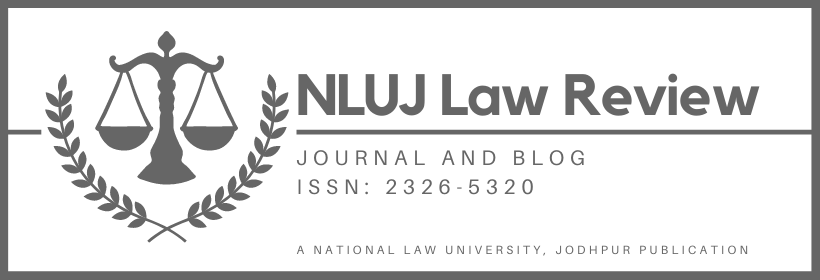Part-II of the article can be accessed here.
The tussle for autonomy between the Union and the Government of the Union territory of Delhi appears to intensify with passage of the heavily-debated The Government of National Capital Territory of Delhi (Amendment) Act [“Amendment Act”]. The ruling government at National Capital Territory of Delhi [“Delhi”] has sought to indict the Centre for defying the electoral mandate by unconstitutionally usurping the former’s autonomy through the Amendment Act. Lawyers and activists have poured in against the Amendment Act, with some labelling it as the “most pernicious” legislation ever received. A petition contends that the Amendment Act is unconstitutional because it represses the legislative powers of the elected representatives in Delhi, as demarcated in GNCT of Delhi v. Union of India [“GNCTD”].
This article first attempts to outline the constitutional position of Delhi (II.), before proceeding to analyse whether the Amendment Act conforms to the constitutional principles, particularly the apex court’s holding in the oft-quoted case of GNCTD (III.). In doing so, it discusses the said legislation in light of the allegations framed against it. The piece then briefly touches on the de facto functioning of the office of Lieutenant Governor vis-à-vis Council of Ministers (IV.), and concludes that the Amendment Act is well within the contours of Constitution and in line with GNCTD.
I. Constitutional Position of Delhi
Article 239(1) of the Constitution vests in the president the authority to administrate a Union territory through an administrator appointed by him. Article 239AA of the Constitution confers the special status upon the Union territory of Delhi, whereby Delhi has been afforded an elected Legislative Assembly, unlike most other Union territories. However, under clause (1) it also creates the office of the Lieutenant Governor, who shall be the administrator of the Union territory of Delhi, appointed by the President in a manner specified under Article 239.
The powers of the Legislative Assembly [“Assembly”] of Delhi are traceable to Article 239AA(3)(a) of the Constitution, which enables it to legislate on all matters delineated in the State and Concurrent Lists, except for the matters dealing with land, police and public order. This, however, does not restrict the Parliament from enacting the laws for Delhi, including the matters on which the elected Assembly is empowered to enact laws, stipulates Article 239AA(3)(b). That apart, in case of an inconsistency between the laws formulated by the Parliament and those enacted by the Delhi Assembly, the laws so enacted by the former shall prevail, as provided under Article 239AA(3)(c) of the Constitution.
Article 239AA (4) states that in the case of a disagreement between the Lieutenant Governor and the Council, a presidential reference of the dispute shall be made by the Lieutenant Governor. It further adds, the decision rendered by the president shall be final and conclusive – a major cause of concern for Delhi Assembly when ruling party at the Centre is adversarial. It is this concomitant existence of an elected Legislative Assembly alongside a Lieutenant Governor acting on behalf of the Centre, that creates jurisdictional chaos in the national capital.
Having acquainted ourselves of the jurisdictional dilemma in Delhi and its position under Part VIII of the Constitution, we now analyse constitutionality of the impugned legislation in light of the allegations levelled against it.
II. Analysing Constitutionality of the Amendment Act
The Amendment Act amends the hitherto Government of National Capital Territory Delhi Act [“Principal Act”]. The Amendment Act has been criticised for diverse reasons. The loudest criticism pertains to the term “Government” occurring in any enactment of the Assembly being connoted as “Lieutenant Governor” [A]. Further, it is made incumbent upon the Assembly to beseech the opinion of Lieutenant Governor before taking any executive action, which has been viewed by the critics as an attempt to subvert the elected Government [B]. The amendment to Section 33 of the Principal Act, which now disables the Assembly to frame rules on matters of day-to-day administration of the Capital, too has invited a litany of allegations for the alleged unconstitutionality [C]. Finally, certain criticisms also relate to the prohibition on Assembly to frame the rules for regulating the conduct of its business inconsistent with rules of the House of People [D].
A. Can “Government” Justifiably be used to Connote the “Lieutenant Governor”?
Section 2 of the Amendment Act postulates that the term “Government” occurring in any enactment of the Delhi Assembly shall refer to the “Lieutenant Governor”. This amendment, the critics say, has overshadowed the mandate of people, because now the Lieutenant Governor, and not the elected representatives, holds the pedestal of “Government”.
In order to ascertain validity of the said amendment, the nature of “Government” needs elaboration. The term “Government” has been defined under Section 3(8)(b) of the General Clauses Act, 1897 [“GCA”], which states that it shall mean either the State Government or the Central Government. The catchphrase is “State Government”, which in context of a Union territory, denotes the “Central Government” under Section 3(60)(c) of the GCA. Therefore, the term “Government” in context of a Union territory only refers to the Central Government.
Furthermore, Section 3(8)(b)(iii) of the GCA, in plain language, posits that the term “Central Government” shall in context of a Union territory mean the Administrator appointed by the President under Article 239 of the Constitution. Article 239AA of the Constitution provides that the Administrator appointed under Article 239 for the Union territory of Delhi shall be called as the “Lieutenant Governor”. Simply put, the term “Government” in case of Union territory refers to the Central Government, which in the case of Delhi means the “Lieutenant Governor”. This reasoning has met approval of the apex court in the GNCTD v. UOI, 2017, [“GNCTD II”] at paragraph 133 of the opinion rendered by Justice A.K. Sikri.
In any event, Section 3(60)(c) of the GCA posits that the term “State Government” in context of a State refers to the “Governor”, the executive head of the State; and the term “Central Government” denotes the “President”, the executive head of the Union, as provided under Section 3(8)(b) of the GCA. Thus, the expression “Government”, which includes both the State and the Central Government, is only referrable to the de jure heads of executive. In the context of Delhi, Lieutenant Governor commands the executive power de jure, concluded the majority at para. 268 in GNCTD. Therefore, in the case of Delhi, the term “Government” can only connote the Lieutenant Governor.
Conclusively, Section 2 of the Amendment Act connoting the term “Government” as “Lieutenant Governor” is in consonance with provisions articulated in the GCA and the legislative intendment underlying it.
B. Whether the Precondition to take Opinion of the Lieutenant-Governor is Violative of the GNCTD?
Section 5 of the Amendment Act aims to amend Section 44 of the Principal Act by inserting a proviso to sub-section (2) therein, which mandates that before taking any executive action pursuant to a “decision of the Council of Ministers”, the “opinion of Lieutenant Governor” shall be obtained. Arguments against the instant amendment allege a subversion of Article 239AA (6) of the Constitution, as the Council of Ministers is endowed with a responsibility to the Legislature and not to the Lieutenant Governor. Furthermore, the decision-making powers of the Council of Ministers is traceable to Article 239AA (4) of the Constitution. It posits that the Council of Ministers in Delhi shall “aid and advise” the Lieutenant Governor in the exercise of his functions. It has been urged by the critics that the precondition to obtain the opinion of the Lieutenant Governor seizes the decision-making powers of the elected government. This part shall first attempt to elucidate the concept of “aid and advise” envisioned under Article 239AA (4) [1] and then analyse the validity of the present amendment [2].
1. Value of “Aid and Advise” Rendered to the Lieutenant Governor
The expression “aid and advise” is not exclusive to Article 239AA (4), and can also be traced to Articles 74 and 163 of the Constitution. Dr. Alladi Krishnaswamy Ayyar, in the Constituent Assembly, noted that “aid and advise” is merely a euphemistic expression which means that the President shall be bound by the advice of the Council of Ministers. The hon’ble apex court exposited the expression “aid and advise” in the case of Shamsher Singh v. State of Punjab(“Shamsher Singh”), as the binding advise tendered to the titular heads – President or Governor, as the case may be – by the Council of Ministers. The advice tendered by the Council of Ministers of the Delhi Assembly is binding on the Lieutenant Governor, the court held in GNCTD.
The President under Article 74(1) of the Constitution may require the Council of Ministers to reconsider their decision, and is bound by the advice tendered after such reconsideration. The Governor is always bound by the advice of the Council of Ministers, except for in certain circumstances. However, this is not the case with the Lieutenant Governor. In case of a difference of opinion between the Council of Ministers and the Lieutenant Governor, a reference to the president shall be made under proviso to Article 239AA (4), whose decision shall be final and conclusive. Based on this, the court in GNCTD observed that a Lieutenant Governor does not have any independent decision-making powers, either he shall accept the decision of the Council of Ministers or shall make a presidential reference.
Section 41 of the Principal Act enables the Lieutenant Governor to act on his own discretion on certain matters that fall beyond the legislative powers of the Delhi Assembly. This is similar to the Article 163(2) of the Constitution which enables the Governor act in his own discretion over certain matters. The said discretionary powers of the Governor were interpreted in Shamsher Singh, where the court opined that even in cases where the Governor has pure discretionary powers, he shall act harmoniously with the Council of Ministers. Ideally, Section 41 shall be given a similar interpretation. This implies that even though the Lieutenant Governor may exercise his discretion on certain occasions, it shall be in conformity with the Council of Ministers in order to uphold co-operative federalism.
2. Whether the Present Amendment Obliterates the Decision-Making Powers of the Council of Ministers?
Cooperative federalism envisaged in the Constitution is founded upon harmonious coexistence and interdependence of the Union and the States. In order to mitigate discord between the Lieutenant Governor and the Council of Ministers, and to further attenuate the possibility of a reference to President, the Transaction of Business of the Government of National Capital Territory of Delhi Rules (“TBR”) postulate a scheme for convivial discussion and resolution. The said scheme instantiates harmonious coexistence and cooperative federalism in Delhi, as noted in GNCTD (para. 262 of the majority verdict).
Rule 14 of the TBR obligates the Council of Ministers to forward all of its decisions to the Lieutenant Governor, before any executive action is taken pursuant to the said decisions. Rule 23 of the TBR enumerates the proposals on certain matters that shall be submitted to the Lieutenant Governor before any order is issued pursuant thereto. Further, Rule 49 of the TBR transpires that in case of a difference of opinion between the Lieutenant Governor and Minister-in-Charge, a reference to the President, under proviso to Article 239AA (4), cannot be made, and the Lieutenant Governor shall strive to settle the dispute convivially through discussion and cooperation with the Council of Ministers. In case the procedure of convivial settlement provided under Rule 49 fails to reap the desired results, only in that case a reference to the President is permissible, posits Rule 50 of the TBR.
At para. 265 of the majority verdict, GNCTD enunciates that the purpose of Rules 14 and 23 is to enable the Lieutenant Governor to form an opinion as to whether the proviso to Article 239AA (4) could be invoked; and if in the opinion of Lieutenant Governor, the matter requires a presidential reference, an attempt shall be made to settle the difference of opinion between the Lieutenant Governor and the Council of Ministers, and only in cases where the differences persist after discussion and deliberation shall a presidential reference be entertained. However, the said purpose of Rules 14 and 23 was unclear, and the court could arrive at this conclusion only after an extensive interpretation of Rules 14 and 23 of the TBR. Therefore, the Parliament enacted Section 5 of the Amendment Act clarifying this position. Section 5 of the Amendment Act states that a specific set of matters decided upon by the Council of Ministers, shall be referred to the Lieutenant Governor for obtaining his opinion thereon in terms of proviso to Article 239AA (4) of the Constitution. Thus, Lieutenant Governor was competent to formulate an opinion even earlier, however it was only a veneered position of law. Nature of the instant amendment is therefore ex abundanti cautela, i.e., an added precaution, as it only imbues further clarity in the pre-existing legislation without moulding the constitutional positions. Therefore, the decision-making powers of the Council of Ministers under the Constitution, remain unaltered.
This is part-I of article authored by Satyam Bhardwaj, student at Gujarat National Law University, Gandhinagar.



